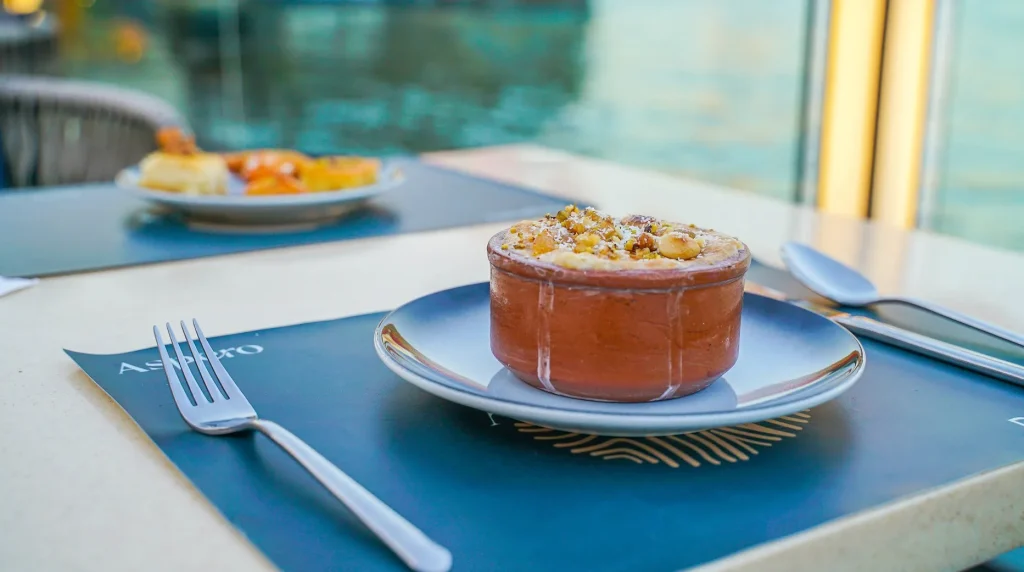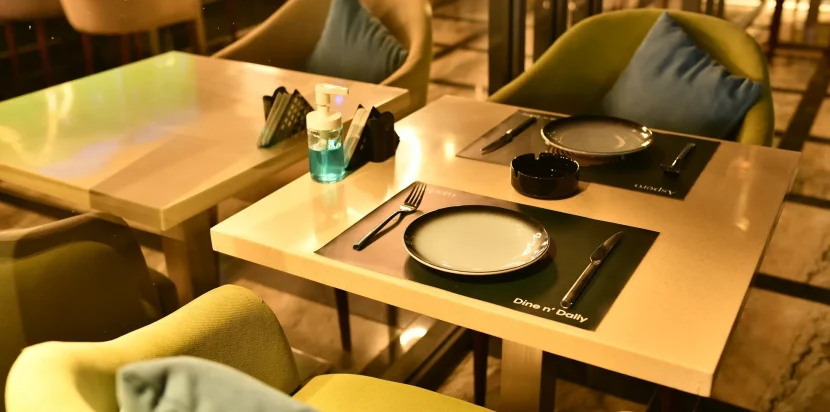Dining etiquette in Egyptian culture is more than rules at the table – it is a reflection of values, traditions, and hospitality. Egyptians treat food as a symbol of community and generosity. From sharing dishes to respecting elders, dining in Egypt carries cultural meaning that goes beyond nourishment. Whether at home, in a casual café, or at fine dining venues like Aaspero, following local etiquette enhances the experience and shows respect for the culture.
The Importance of Hospitality
Guests as a Priority
Egyptian hospitality is legendary. Guests are often treated like family, and refusing food may be considered impolite.
Generosity in Portions
Meals are served in abundance, reflecting the cultural belief that offering plenty of food is a sign of care and respect.
Atmosphere of Warmth
Dining is often accompanied by conversation, laughter, and storytelling, turning meals into social events.

General Dining Etiquette in Egypt
Eating with the Right Hand
Traditionally, Egyptians eat with the right hand, even when utensils are available. Using the left hand for eating is generally avoided.
Shared Dishes
Meals are usually served family-style, with large platters placed in the center of the table. Taking modest portions ensures everyone shares equally.
Respect for Elders
Elders are often served first, and it is polite to wait until they begin eating before others start.
Accepting Offers
Hosts may encourage guests to eat more, and it is considered polite to accept at least a small portion, even if full.
Dining at Home vs. Dining in Restaurants
Home Etiquette
When invited to someone’s home, it is polite to bring a small gift, such as sweets or flowers. Guests usually wait until the host signals the start of the meal.
Restaurant Etiquette
In restaurants, tipping is expected, usually 10–15%. Politeness toward staff is highly valued, and modest attire is appreciated in more traditional venues.
Fine Dining Venues
At high-end restaurants like Aaspero, etiquette takes on a more formal tone, combining Egyptian warmth with international standards of refinement.
Special Dining Etiquette During Ramadan
Iftar
Breaking the fast at sunset is a communal experience. Traditionally, dates and water are consumed first, followed by a large meal.
Suhoor
The late-night meal before dawn is lighter but equally important, often shared with family and friends.
Respect for Fasting
Even if not fasting, it is respectful to avoid eating or drinking in public during daylight hours.
Dining Etiquette in Business and Social Settings
Business Meals
Business discussions often take place during or after meals. It is courteous to let the host lead the conversation.
Romantic or Social Outings
Couples and friends enjoy casual or fine dining together, where respecting personal space and maintaining politeness is essential.
Celebrations
Birthdays, weddings, and family gatherings highlight generosity. Abundant food and inclusive atmospheres are expected.
The Role of Food in Social Bonds
Strengthening Family Ties
Meals bring families together, often daily, reinforcing unity and tradition.
Building Friendships
Inviting someone to share a meal is a sign of closeness and trust.
National Identity
Sharing dishes like koshari, molokhia, or stuffed vine leaves reflects Egypt’s cultural heritage and national pride.
Modern Influences on Dining Etiquette
Globalization
International dining trends are blending with Egyptian traditions. Young Egyptians often adopt more relaxed customs while still respecting core values.
Technology and Dining
Online reservations, food delivery, and digital menus have added convenience but haven’t replaced the value of hospitality.
Blending Old and New
Restaurants like Aaspero showcase how modern refinement can exist alongside Egyptian traditions, balancing innovation with cultural authenticity.

Why Dining Etiquette Matters
Respect for Culture
Observing dining etiquette demonstrates awareness and appreciation of Egyptian values.
Enhancing Experiences
Guests enjoy smoother interactions and stronger connections when they respect traditions.
Creating Memories
Dining becomes more meaningful when guests embrace both the food and the customs surrounding it.
Finally
Dining etiquette in Egyptian culture is about respect, generosity, and connection. From eating with the right hand to sharing dishes and honoring elders, these customs reflect the country’s values. In homes, on the streets, or at fine dining venues like Aaspero, meals are about more than taste – they are about building relationships and celebrating tradition. By embracing Egyptian dining etiquette, every meal becomes an opportunity to experience culture, community, and hospitality at its finest.
 Phone: +010 50 855 838
Phone: +010 50 855 838  Email: restaurant@asperogroup.com
Email: restaurant@asperogroup.com 


Comments are closed